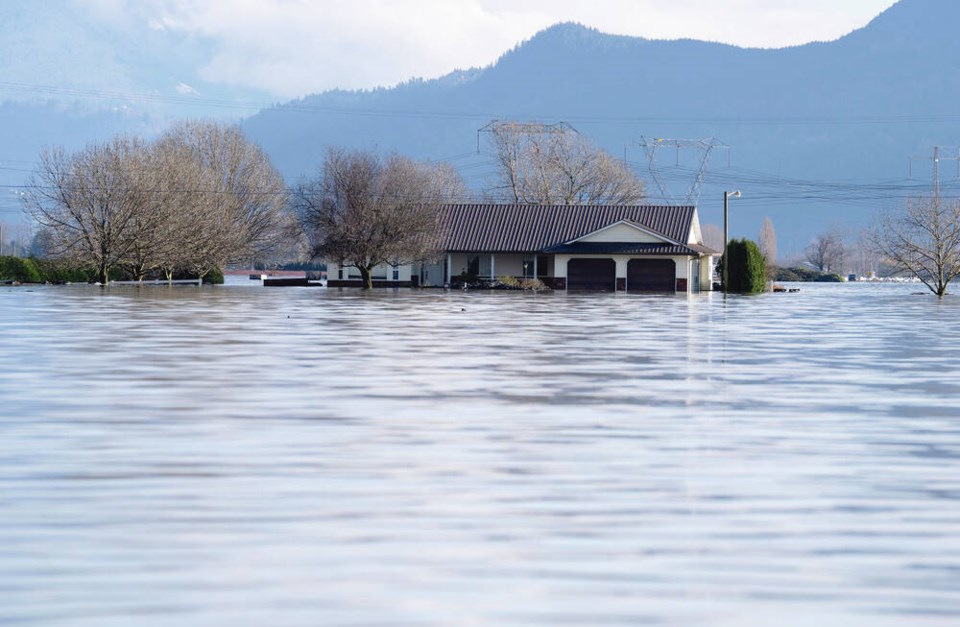Another lesson learned this week for catastrophes to come: Let’s just skip the emergency debate in the legislature. Or at least find a way to make it relevant.
The one this week was a waste of time.
Nobody expected it to ease the assorted dire situations around B.C. It was purely a symbolic measure to show people in the afflicted areas that their problems had registered in the seat of government.
But it barely managed even that. The natural defensiveness of NDP MLAs any time government is scrutinized took over. The opportunity for a frank discussion of the lessons to be learned faded away. Incredibly, the NDP even objected to holding the debate initially, saying it wasn’t necessary.
After surrendering on that score, it didn’t help that the NDP left it mostly to backbenchers to fill their time. They managed to slot just two cabinet ministers into the lineup. (That’s partly excused by the fact ministers are on non-stop conference calls dealing with the aftermath.)
The legislature runs on its own rigid timetable and the provisions for emergency debates are quite limited. So just getting one started, as the opposition B.C. Liberals managed to do this week, is a bit of an accomplishment.
This week, the defensiveness kicked in instantly and the government tried to block it from the outset. Public Safety Minister Mike Farnworth’s first response to the motion was: “I would disagree at this point in terms of the need for an emergency debate. Response has been taking place since the weekend. The state of emergency has been in place and actions are being taken.”
That stance was similar to the stunt they pulled recently in the freedom of information law argument. To block an opposition move to delay it, they went mute and refused to defend themselves, letting the opposition talk themselves out for two days.
On the emergency debate, they quickly realized how ludicrous their position was. It’s far and away the most expensive natural disaster in the province’s history. Beyond that, it could emerge as a turning point for dealing with climate change.
So after a private meeting, the NDP pivoted and joined the Liberals and Greens in agreeing to hold one. That removed the need for the Speaker to make the obvious ruling that one was warranted. They devoted an hour under the heading “response to severe weather events.”
Liberals and Greens explored some of the tough issues that need to be faced. But New Democrats who spoke were much more interested in cheerleading for the community responses than zeroing in on what needs to be done better.
They dwelled on the offers of help pouring in, the livestock rescue missions and the volunteer sandbagging. And they heaped praise on the government response.
“This government is working hard. The amount and intensity of the work being done across ministries … is staggering and inspiring,” said one.
“What I can say is that our community sure has felt supported,” said another.
Another warned against “politicizing this devastation to cause fear-mongering.”
There’s no question responders are working flat-out and deserve gratitude. But there’s lots of room to discuss the policies that fell short and changes that must be made to ease the need for a heroic emergency response in the first place. It’s not fear-mongering to talk about better alerts, faster responses and system redesigns.
Liberal critic Mike de Jong, from the inundated Abbotsford region, had to point out: “Whether folks want to accept this or not … there’s an abiding feeling that someone dropped the ball, because they didn’t get the information or the notice.”
One of the arresting stories from the Fraser Valley as the pelting rain intensified is about people hearing the flood sirens wailing — from the U.S. side of the border. Officials there reacted faster.
Liberals used the debate to demand a major rethink of the reticence that’s been on display throughout this year on fires, the heat dome and the floods. An alert system that has never been used in B.C. should be made ready for instant use, they said.
Farnworth closed debate by saying that’s in the works. He acknowledged “the fundamental way in which we deal with emergencies does have to change.”




